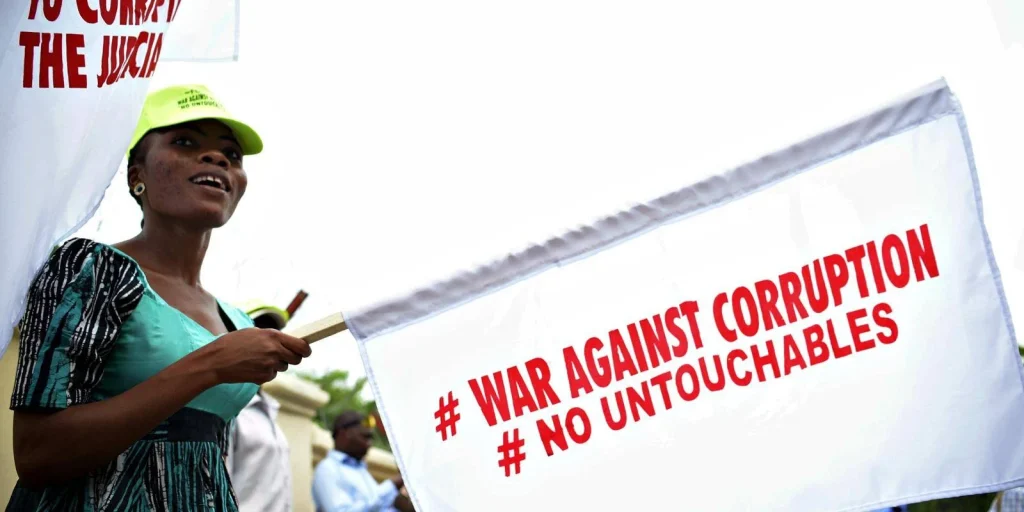Nnenna Eze, Communication Manager at the Public and Private Development Centre, stated that a 2024 Chatham House review found that over 61% of judges were likely to accept bribes to alter rulings. She cited the ICBC’s 2020 corruption index, which revealed that judges and magistrates received the highest amount of cash bribes despite minimal interaction with citizens. She also referenced similar findings from the UNODC.
Speaking on News Central’s Jasiri on Wednesday, Eze explained that these reports exposed weaknesses in the judicial system, with political interference being a major factor. She noted that individuals who embezzled large sums could manipulate the system, delay proceedings, and ultimately evade justice. She added that slow judicial processes not only hindered anti-corruption efforts but also eroded public trust.
According to her, prolonged prosecutions meant cases could drag on indefinitely. She stressed the need for mechanisms to expedite high-profile cases and observed that while some African countries had established institutions to handle corruption and economic crimes, Nigeria could adopt similar measures. Such institutions, she argued, would prevent cases from lasting seven to ten years and enhance judicial efficiency.

Eze also addressed Nigeria’s Corruption Perception Index, which had risen from 25 to 26. While the improvement was commendable, she noted it was marginal and did not account for anti-corruption initiatives. The index, she explained, was based on perceptions from think tanks, business professionals, and experts.
Despite the one-point increase, she pointed out that a score of 26 out of 100 remained far below average. Nigeria had been stuck in the 20s for over a decade, despite numerous policies, reforms, and efforts from civil society, think tanks, and international partners. This slow progress, she said, was underwhelming given the extensive work being done.
Eze attributed the lack of significant improvement to systemic corruption deeply entrenched in Nigeria. She highlighted the lack of transparency in accessing information, particularly in procurement, where limited data access and widespread corruption remained major challenges.
Watch the full interview below.


